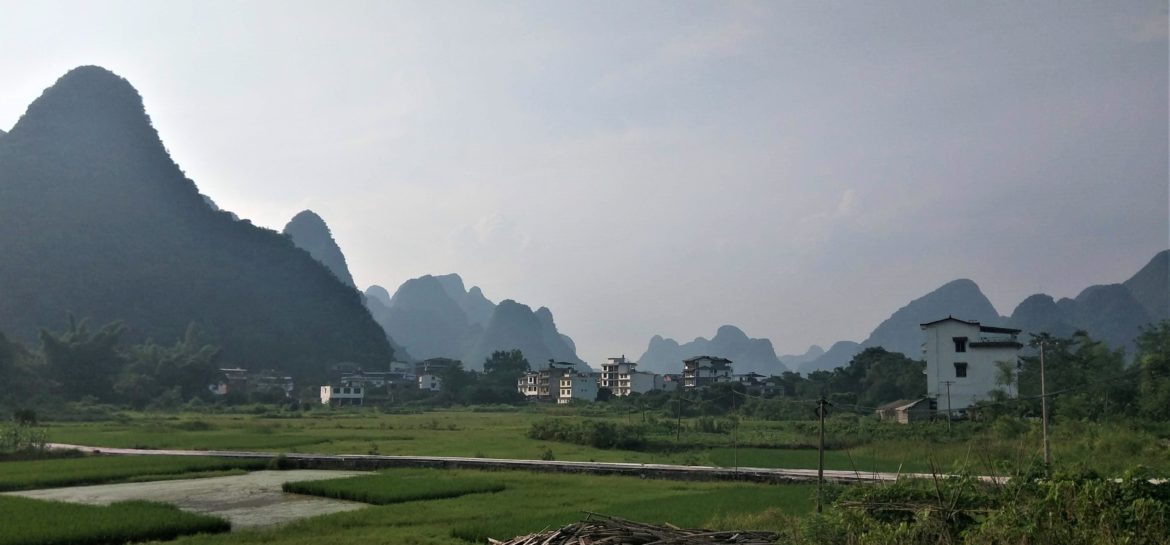
There is a saying in China that “Guilin has the best scenery under the heaven, but Yangshuo is even more beautiful.”
For our last in-country vacation while in China, we had hard decisions to make. We sought something different – not the big city nor the bustling culture marketplaces but something more, well, sublime. At one point in our search we recalled the places we’d been and realized how many of them were on the national currency – Beijing, Hangzhou, and the Yangtze River. Soon enough, we knew we had our next destination.
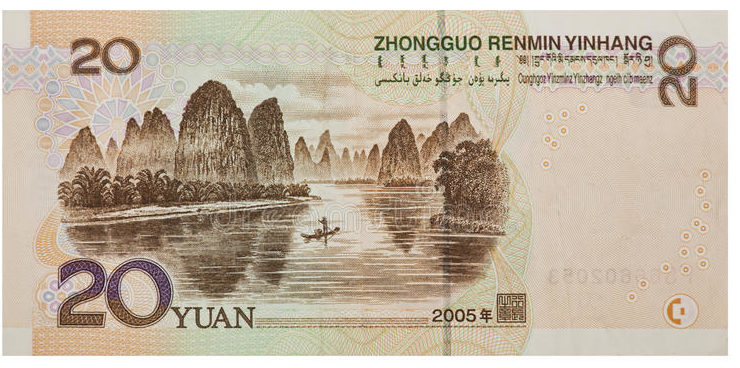
Guilin, with its hundreds of rounded karst mountains surrounding a meandering Li river, is the national site on the Chinese 20 yuan bill. As the country has modernized and the economy grown so has local Chinese tourism grown. Now many cities, such as Guilin, have changed dramatically with the deluge of local tourism. Yangshuo is the more secluded (but not unknown) place to take in scenery like Guilin with slightly less of the tourist bustle. Preparing for our trip we were often asked about our destination. I found that after I said “Yangshuo” there was a slight pause until I added “down by Guilin”. It became such a frequent saying, our family now refers to the area distinctly as “Yangshuo, down by Guilin”.
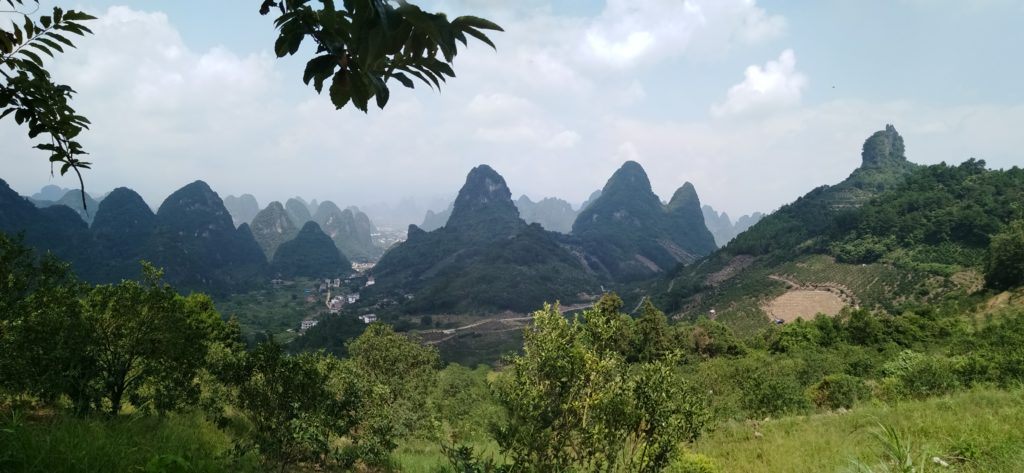
Knowing that train travel would become a fleeting memory once back in the United States, we again embraced the unique combination of relaxation, scenic views, and economy that is train travel in China with a 9 hour fast train to Guilin. Our route took us into the southern regions of China. The landscape unfolding out our windows was like a movie trailer for serenity. Green fields, mountain ranges, and small quaint villages let us know we were entering a particularly beautiful countryside.
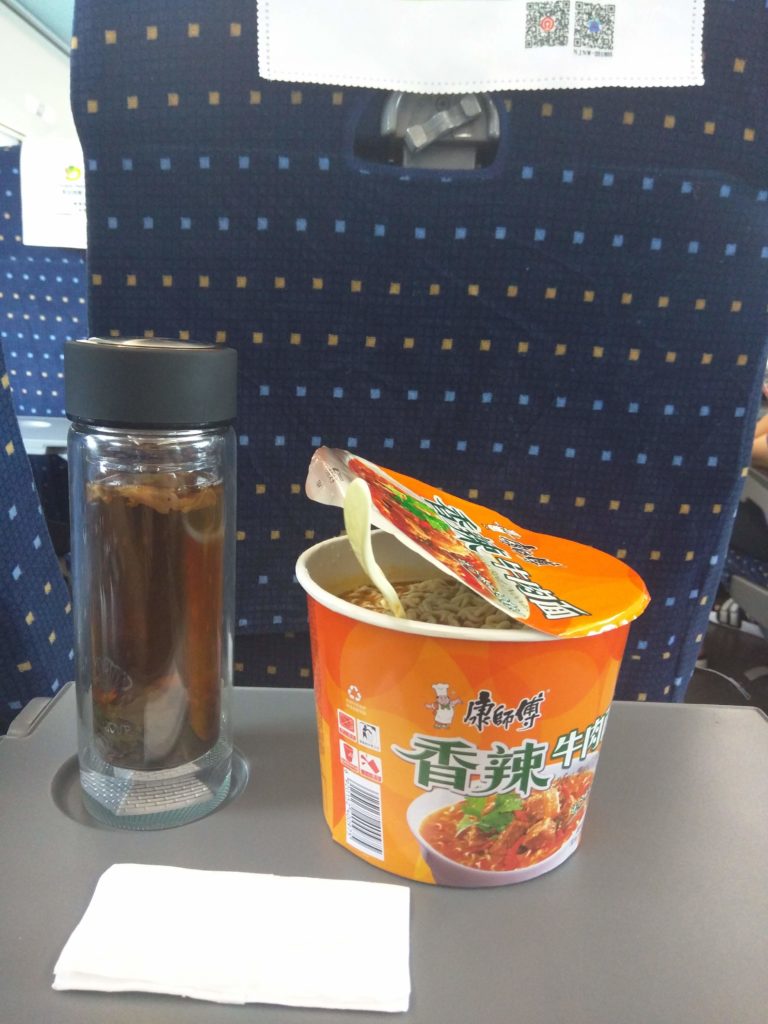
Our driver met us at the Guilin train station and drove us an hour away into the setting sun and our hotel, while serenading us with the lively sounds of the latest Chinese club music.
Yangshuo Town is a fast-growing city that hosts a vibrant scene of nightclubs, bars, and shops. On the outskirts of the city sits a protected ecologic park that is closed to certain development and most car traffic. Several years ago, the Chinese government formed select tourism protection areas around the country and erected gates around these areas to limit and control the more negative effects of tourism. The protected area around Yangshuo is home to several small villages along the Yulong River and maintains the rural farming feel that the area has known since it was first settled.
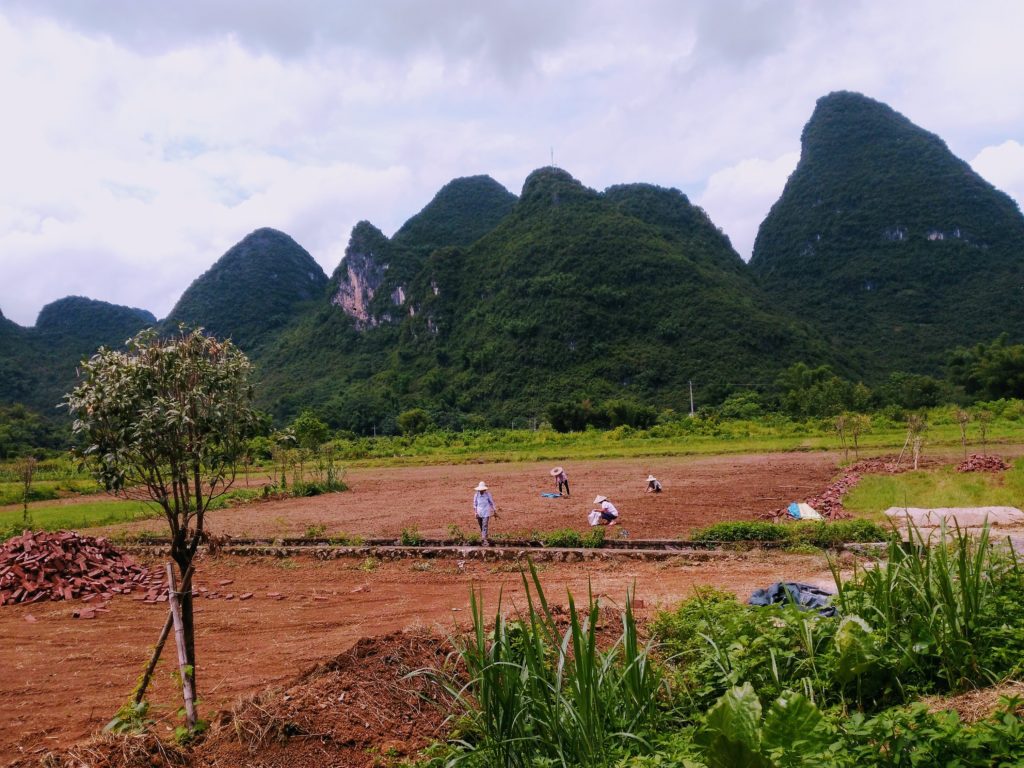
Within this protected ecological area, sat our budget friendly, but in all other respects 5-star resort, the Tea Cozy Inn. The entryway, lit by red Chinese lanterns provided a soft glow for us as we crossed the arched stone bridge into the mahogany foyer. After a welcoming tea we were shown to our suite that awed us with it’s (never before seen by our family while in China) luxurious bedding, modern and high-end spa bathroom and lovely suite length balcony. But true magic of this hotel was in personalized service and friendliness of the staff. From the welcome tea to the walk to our car and wave goodbye, we were treated like royal guests.
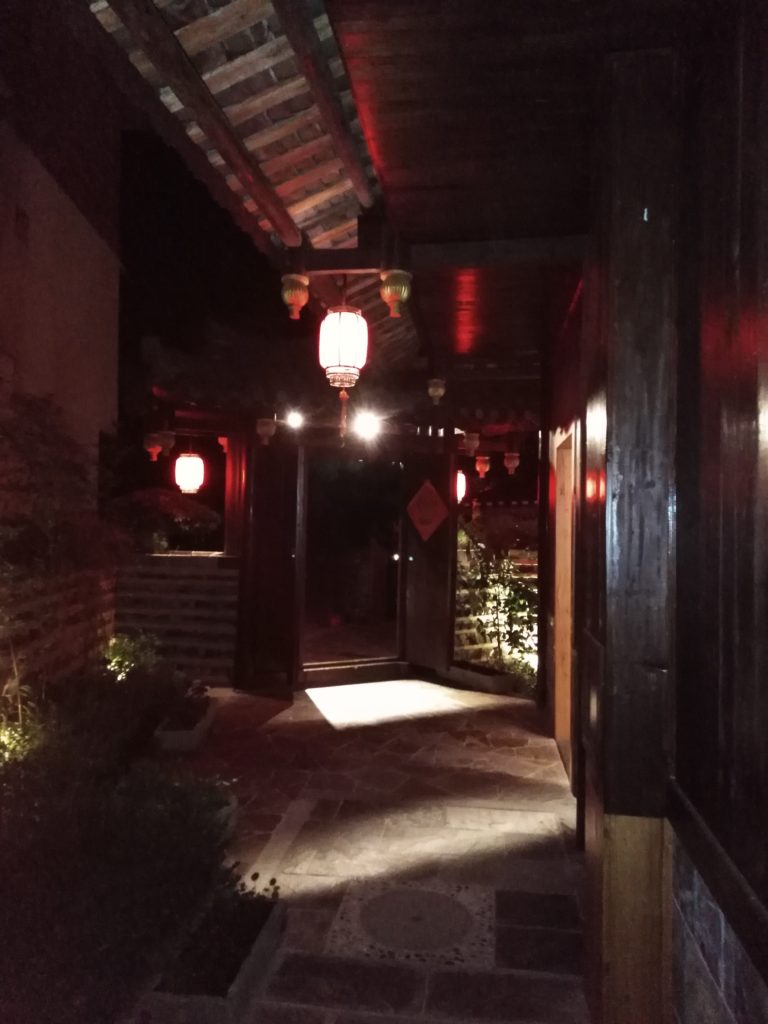
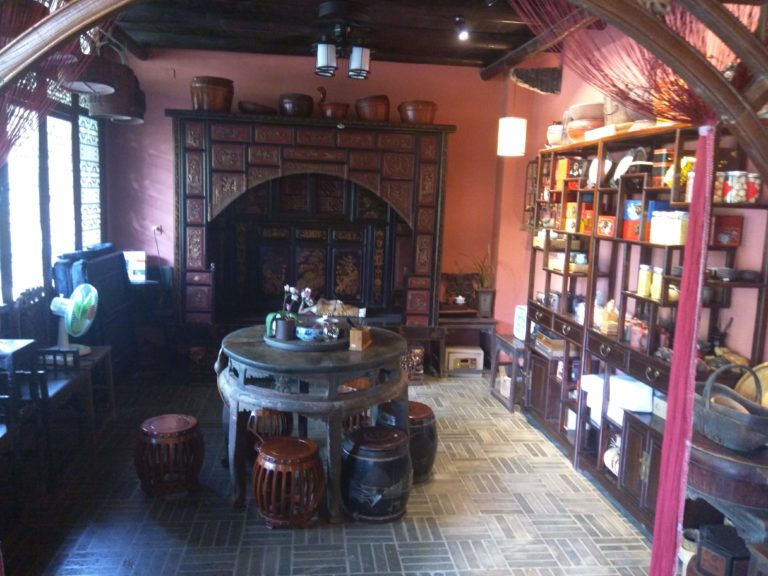
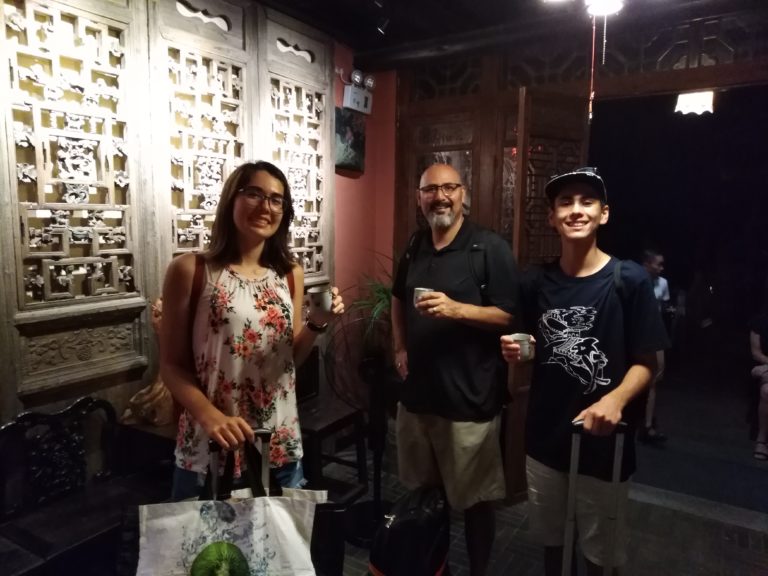
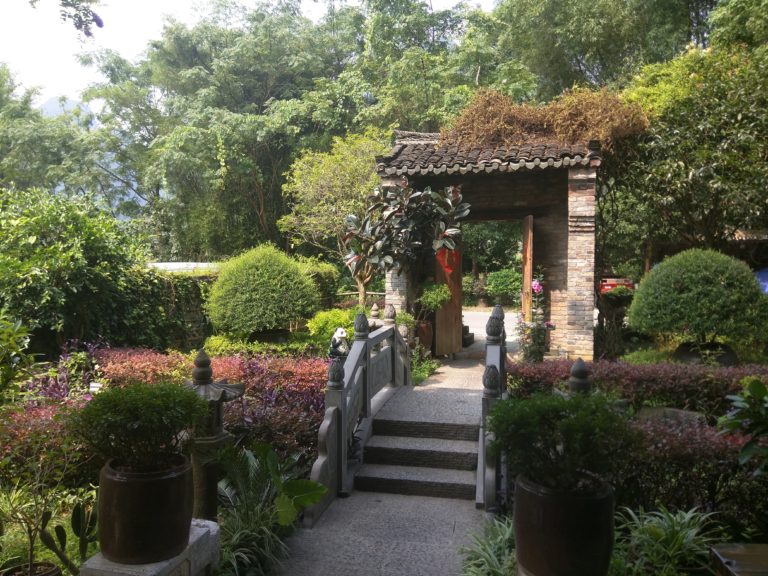
The next morning, after a poolside breakfast that revealed mountains emerging from their nightly blanket of mist, we laid out a map of the area and selected our daily adventures.
First up was biking up the Yulong River. This 2 hour bike ride took us through small isolated villages and across ancient bridges. Our stops were frequent and largely involved wetting ourselves and our towels down in the river to help us cool off in the 98° F with 92% humidity which sweltered over us the entire weekend.



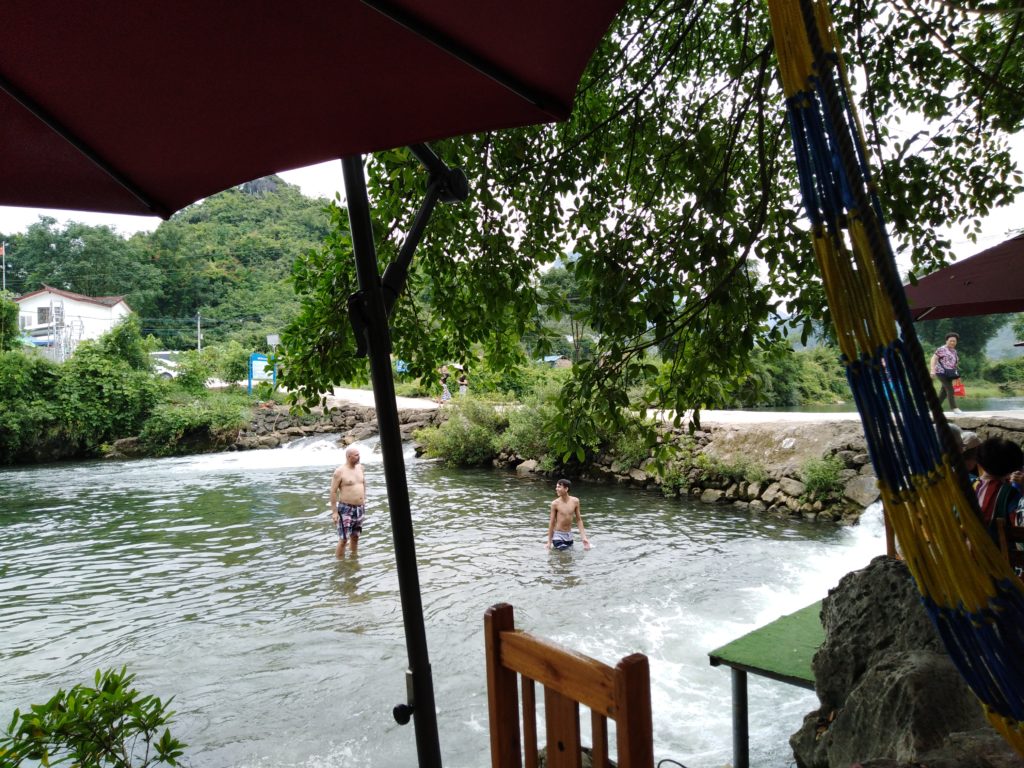
We found some additional cool that afternoon as we rafted back down the river in a traditional bamboo raft which was expertly navigated with a long bamboo pole wielded by a balanced oarsman in the back. Though at times clogged in Disneyland style fashion, much of the river was also calm and relatively free of people. At one point we even were startled by the gruff snort of a buffalo taking to the water to get some heat relief as well. Good friends who had spoken highly of this region told us of their first visit some 15 years ago when the lack of tourists allowed them to simply walk to the shore at dusk to hop on a raft and have the river to themselves as they watched the sun set over the hills.
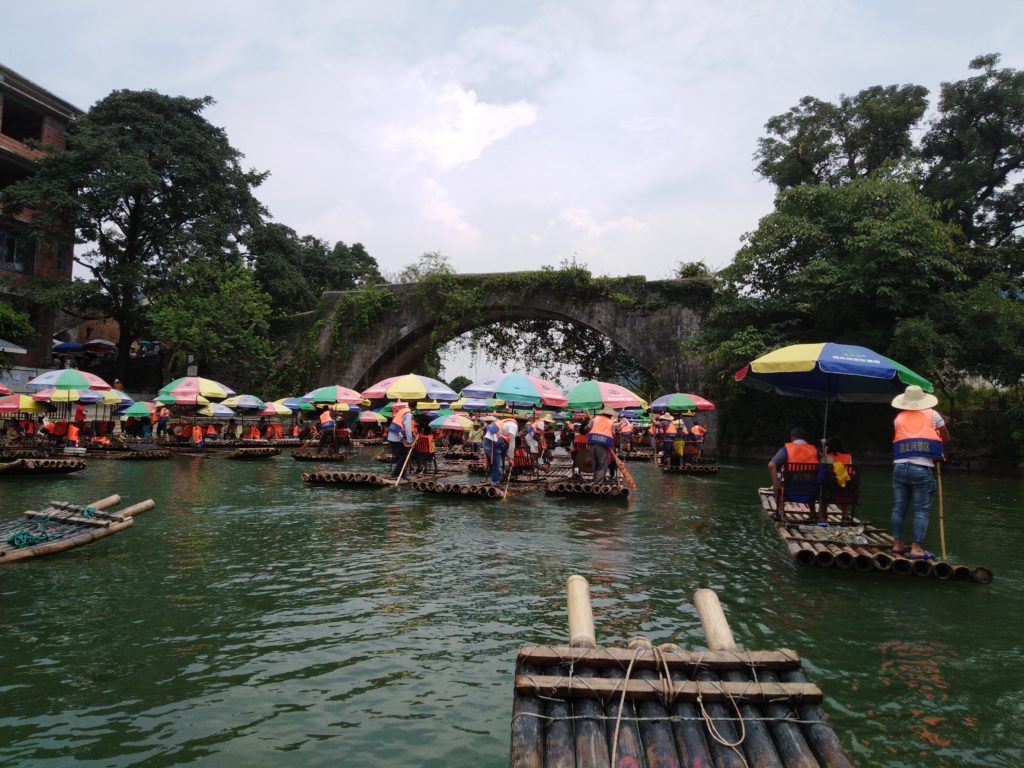
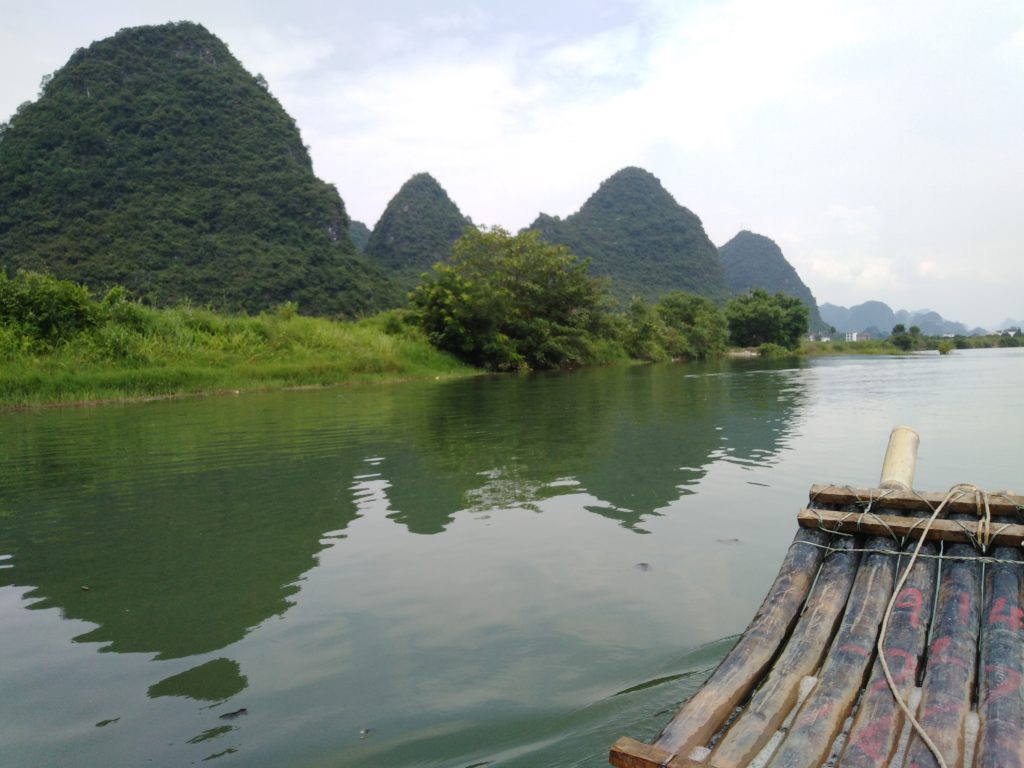
The next day we hired a driver to take us to the scenic spots that weren’t in easy biking distance. We stopped at a mountainside tea plantation to hand pick our own basket of green tea. We lunched at a local family diner and were the only guests on a back balcony with stunning views of the mountains. Later we hiked up this same mountain to see a dramatic vista of the surrounding area.
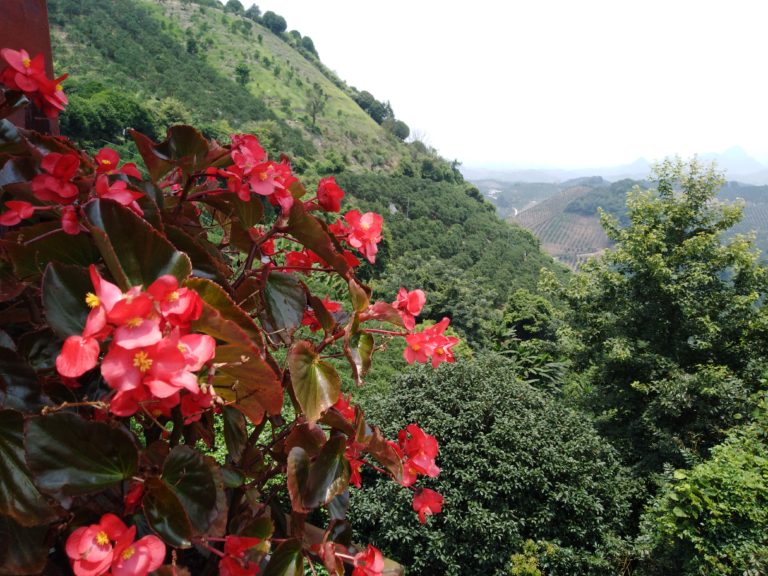
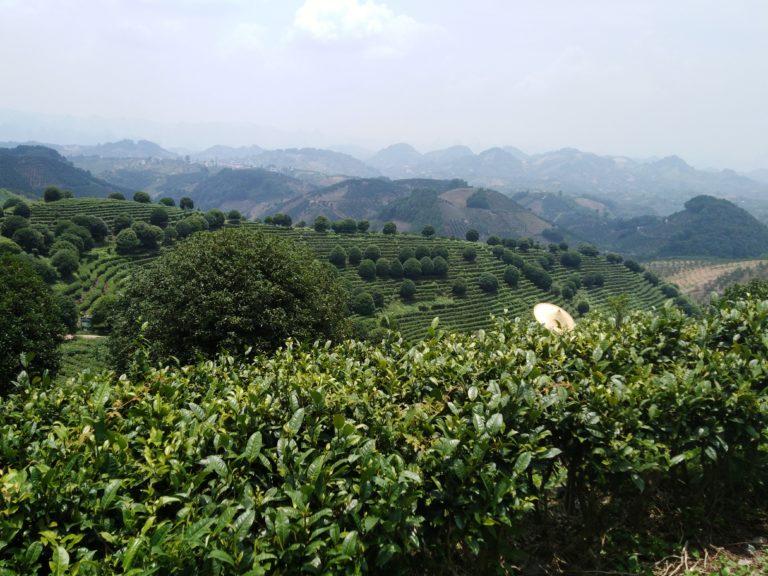
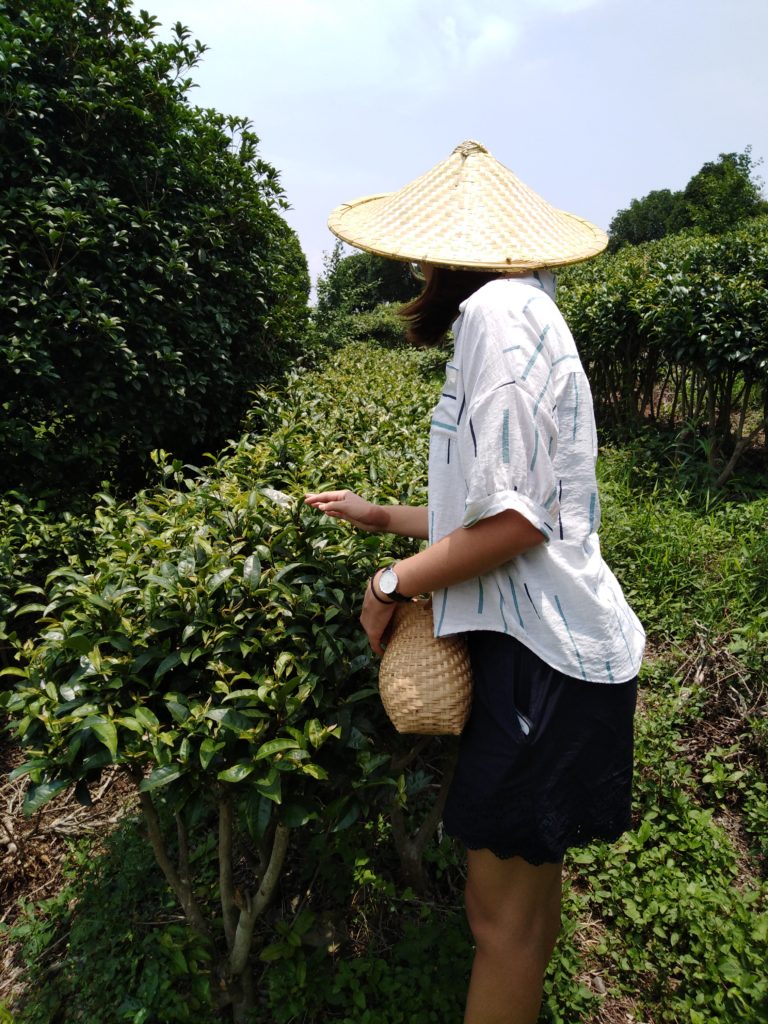
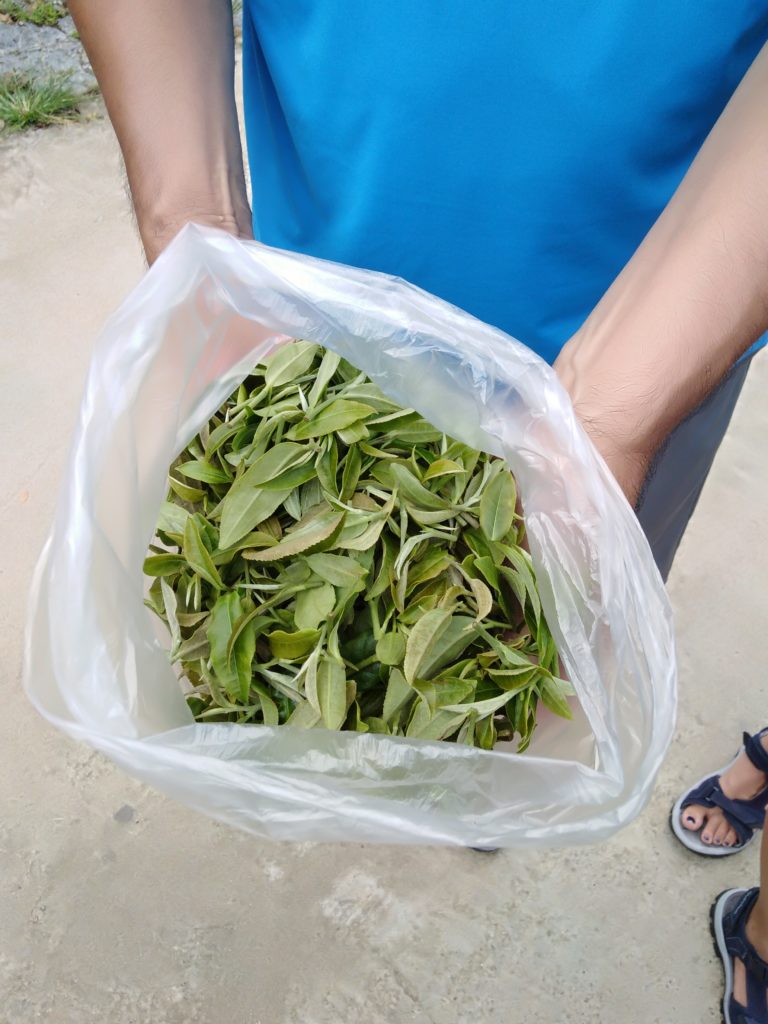
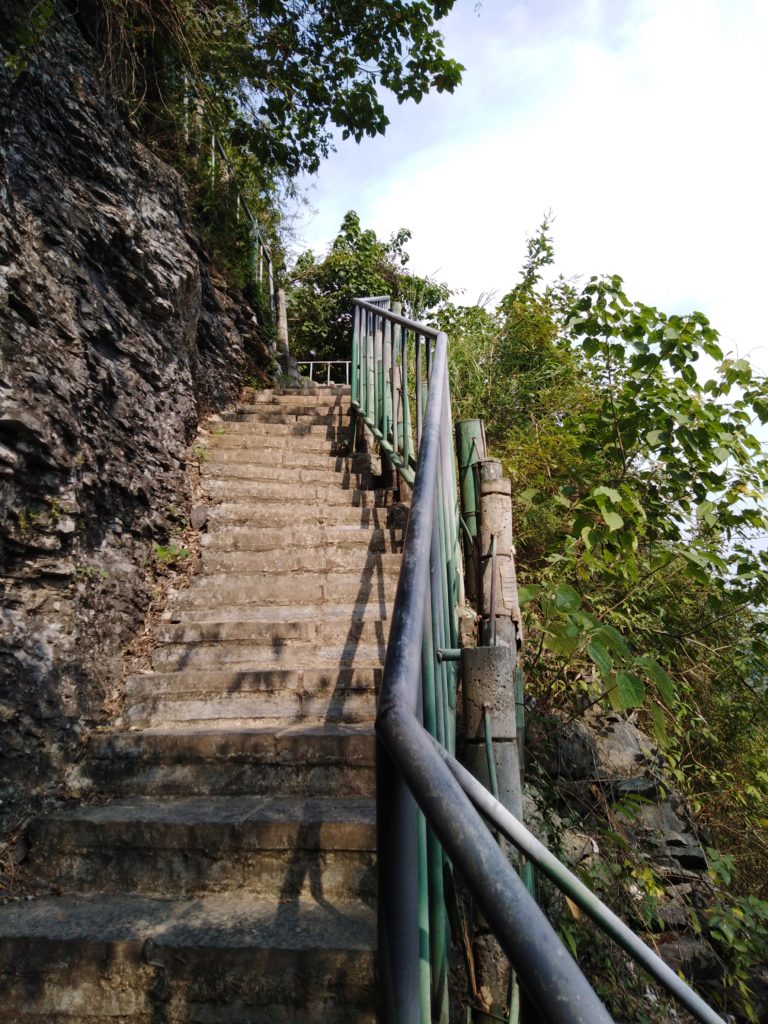
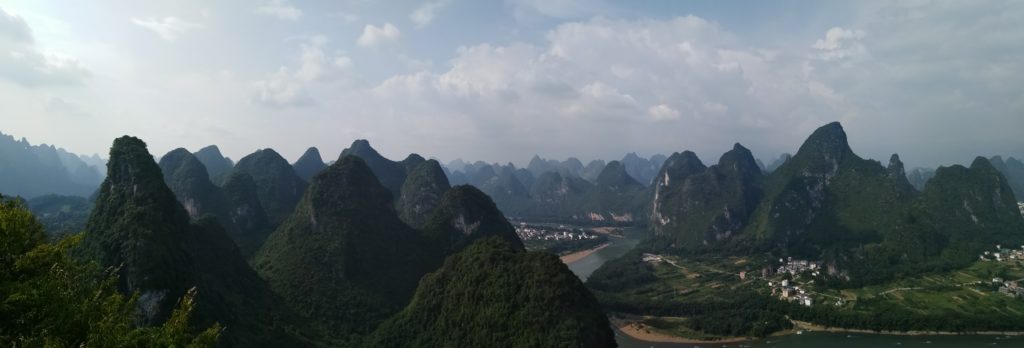
Finally, a small unassuming hill in Putao Town was our last stop. We had intended to see the sunset from the top of this hill, but our driver told us that rain was expected and he encouraged us to not walk up the mountain. I responded with a smile and confident assurance that we weren’t afraid of rain and bounded out the door. As he hurried behind us he said, in 15 minutes it will downpour. I thought jeez, that was pretty specific. He and the rest of my family decided to run up the mountainside while I chose a more leisurely walk. Exactly 15 minutes later I was soaked in a deluge of rain. As I was thinking to myself that our driver had a keen local weather sense, I saw him running back down the hill in the rain to help me. Feeling ashamed that he had to get soaked for me, I quietly listened to the other advice he had for me from then on – particularly when he said that lightening was about to strike. Taking shelter in a stone cabin atop the hill, I saw that it was also full of large camera equipment from a National Geographic crew. Looking out the stone windows I saw the mesmerizing scenery that drew these top photographers. We stayed for a bit to see and hear the thunder and lightening and then when the rain let we worked our way back down the path to our car. When I thanked our driver for his help, he shrugged it off in the typical Chinese way of not wanting thanks or praise. What else was expected of him?


Each day the heat came and if it weren’t for the fantastically beautiful scenery and the afternoon rainstorms it would have been tiresome. But the local bike rides, moped rides to local caves and strolls through small village markets accompanied by a cooling dip in the pool during afternoon rain showers was the sublime we all sought.
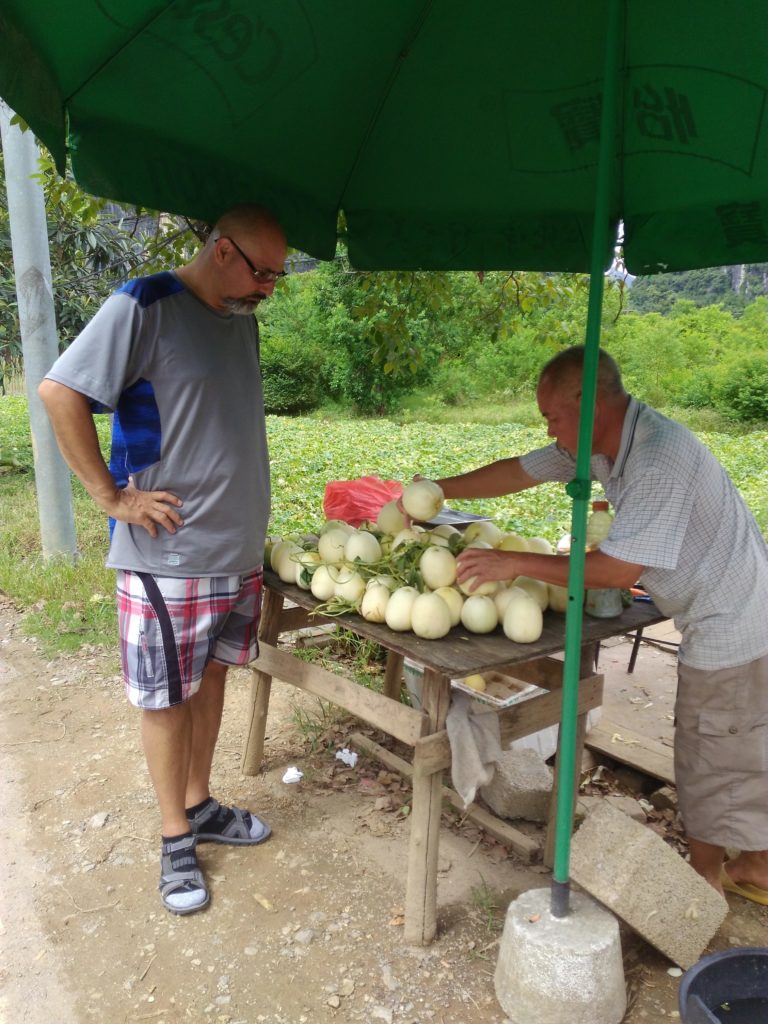
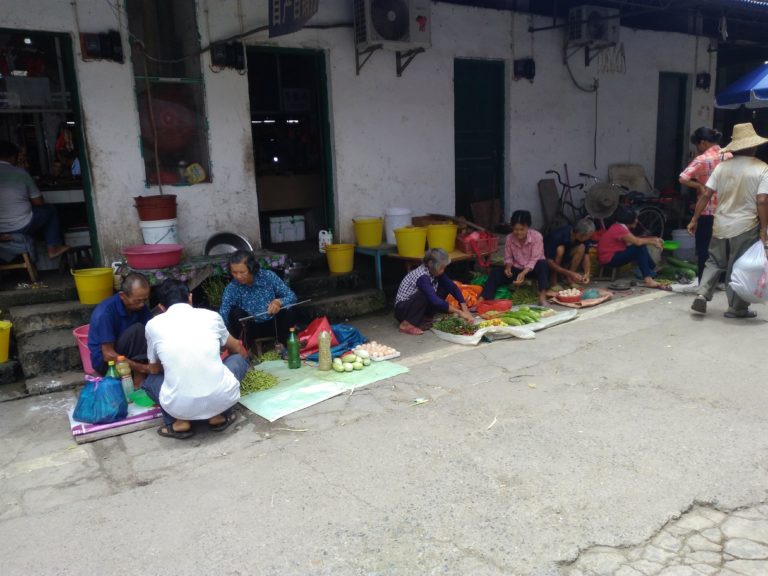
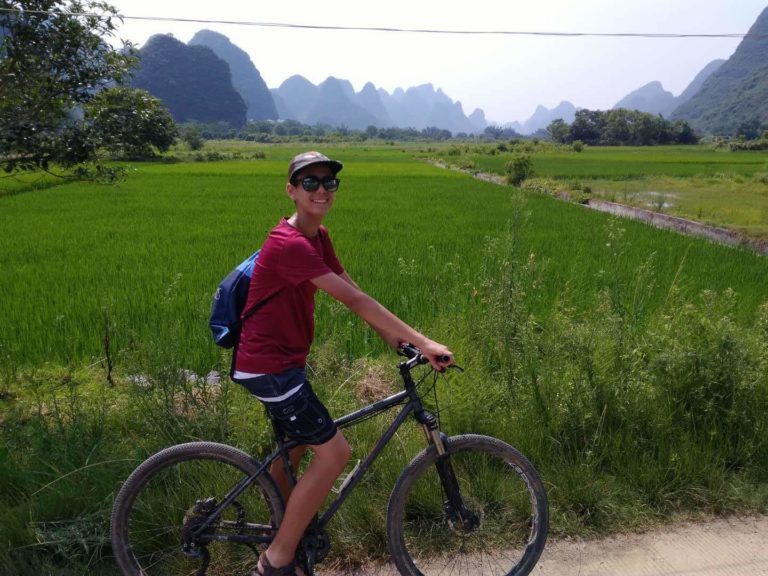
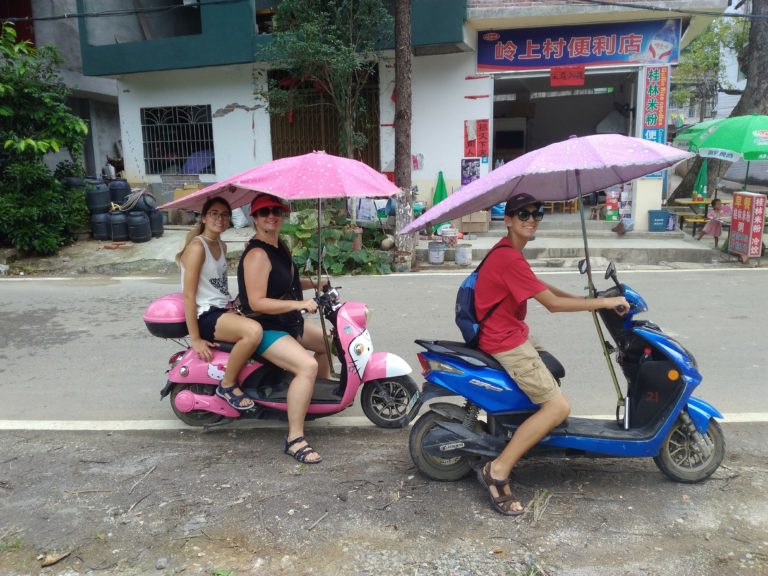
We had time to reflect on our idyllic trip as we took the 18-hour sleeper train back to Shanghai. The only detraction from perfection on this ride was again the heat and the fact that of the entire train, our cabin was the one with the defected and damaged window with no view. Though disappointing, our visions were still on lovely Yangshuo. I recalled a conversation I had with fellow travelers at dinner the night before. As we shared travel stories with visitors from Spain, Hong Kong, and America we were asked to share our favorite Chinese cities. I had said it was easily and comfortably Hangzhou earlier but now I was beginning to wonder. They laughed and said they were just having that argument themselves. Hangzhou is magical – but Yanghshuo is, maybe, even more.
